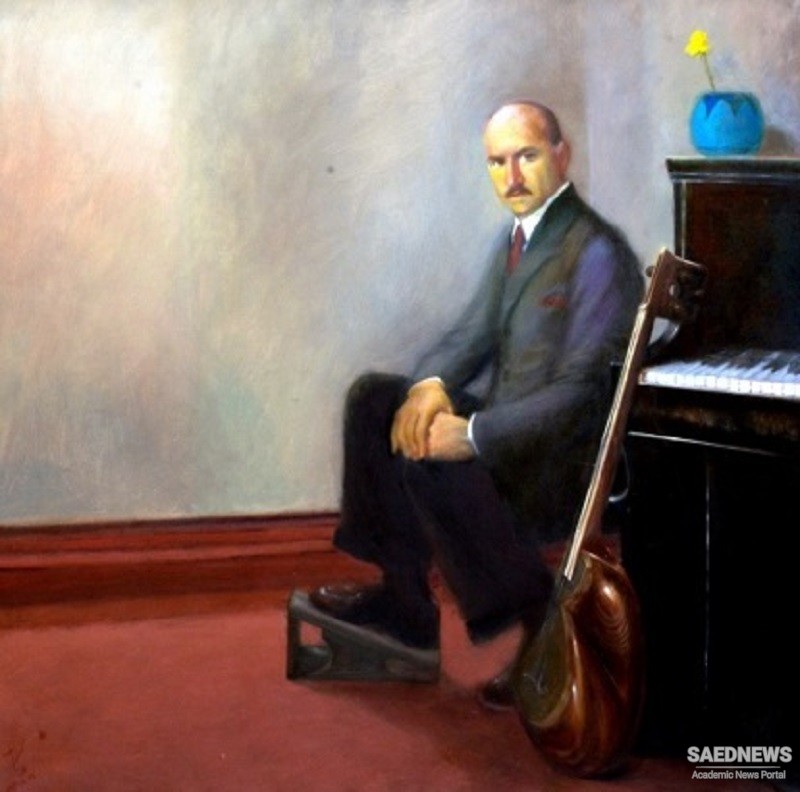The son of a general in the Imperial Iranian Army , Ali Naqi Vaziri attended military school in Tehran and served as an officer in the army. At the same time he studied music on his own and under a number of masters in Tehran. In 1918, at the age of thirty-one he left for Paris to continue his musical education, studying piano, harmony, and voice at the Ecole Supérieure de Musique. After three years, Vaziri moved to Berlin, where, with the idea of starting his own conservatory in Iran along European lines, he observed all the classes as the Hochschule für Musik and studied counterpoint and composition. In 1923 Vaziri returned to Iran and founded his conservatory, the Madresse-ye Ali-ye Musiqi. This school lasted until 1935, when Vaziri left it to become professor of aesthetics at Tehran University.In the following years, Vaziri's contributions to the development of Persian music were manifold. He wrote several books on the theory of Persian music and published the first collection of Persian music transcribed in Western staff notation.5 In addition, Vaziri composed a considerable quantity of Persian music in the European idiom, performing it along with more traditional Persian music and Western music at several yearly concerts given by conservatory students. Twice the director ofthe government's Conservatory of Music (from 1927 to 1934 and from 1941 to 1946), Vaziri also administered the music section of Radio Iran. Although Henry Farmer described Vaziri as the "aged Professor of Aesthetics" in the 1954 edition of Grove's Dictionary, in 1965 Vaziri appeared not at all aged, but most vigorous and enthusiastic, still eager to argue vociferously the merits of quarter tones in Iranian music. Ah Naqi Vaziri is responsible for injecting new life into music in Iran and specifically into native Persian music. Although he had spent several years studying in Europe, Vaziri's intention was not to teach Western music per se, but to use it for the revitalization of Iranian music (Source: Introductio to Persian Classic Music, Zonis).


 Qurarter-tone Theory of Music in Modern Persian Music
Qurarter-tone Theory of Music in Modern Persian Music














































